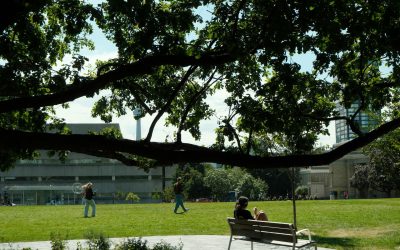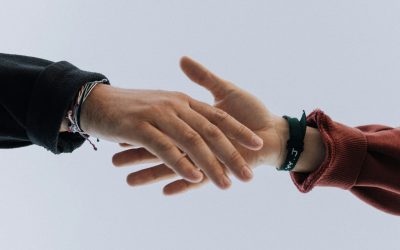Did you know that people who suffered childhood adverse experiences are more likely to drop out of education? Do you think everyone should be given a second chance? If YES is your answer, you should keep an eye on what we have up our sleeves.
We have teamed up with 5 other organizations across Europe with the intent of helping early-school leavers (ESLs) reconsider their personal relationship with education by launching a project called THRIVE – Train Hope, wellbeing, and Resilience In Vulnerable Early School Leavers. More importantly though we feel like we can play our part in increasing their self confidence.
More often than you may think, the cause of educational poverty is to be found in the belief among some young people that they have little to offer to their society in terms of personal and social potential. In parallel to that, educational settings in Europe sometimes lack the instruments, and willingness at times, to pause and listen to what young people have to say about their individual realization.
It’s often easier to just stick to a predefined plan, not necessarily adapted to the individual needs of students, with the result that schools’ curricula and environments run the risk of not representing their recipients’ necessities.
This problem becomes ever more apparent as European cities and hence school settings are increasingly diverse in terms of the cultural and social background of their students. A diversity which, we strongly believe, represents a creative potential.
With THRIVE we wish to shift attention towards not just the influence that educational settings have on young people, but also on the positive impact which young people can bring to those settings. In other words, the project is based on the profound belief that any process of education is ultimately built upon a dual relationship where both students and education professionals have the right (and the ability) to play their part.
How can we help young people who have already interrupted their educational process but wish to be reintegrated into second-chance school settings? More centrally, how can we support second-change education professionals help young people?
If you have never heard of terms such as positive psychology, resilience, and trauma sensitive environments, it might be time for you to start getting an interest as you will find that they can represent a powerful instrument in education.
Although we realize that any important process of positive change requires time, something can be done now and that is we can try to promote feelings of emotional security in students, improving their confidence and autonomy, and ultimately encouraging their personal development. THRIVE will try to do exactly this, by using techniques drawn from positive psychology and resilience, which simply mean taking a moment to empathize with young people and with their needs starting from their perspective.
Over the course of 2 years, THRIVE’s partner organizations will work to train second-change education professionals in making the best use of these techniques. Firstly, we will try to understand what professionals and young people might need the most in order to be helped achieve more positive educational environments. Then, we will develop a comprehensive training programme for educators combining the principles, methods and techniques of positive psychology, trauma-sensitivity, wellbeing and socio-emotional skills enhancement. Finally, we will make sure that the training programme is available to as many educators as possible by creating an online open-access package combining these alternative techniques.
If you are an educator working in second-chance school settings, believe us, you have a role to play in this project. And if you too think that young people’s future chances can be increased by trying to make their educational environments more able to listen and communicate, do not hesitate to get in touch with Eileen Quinn at this address:
About the project
THRIVE – Training Hope, wellbeing, and Resilience in Vulnerable Early school leavers is being co-financed by the Erasmus+ programme Key Action 2, Strategic Partnerships for adult education.
Partners
The project holds together 6 organisations:
- Coordinator: ICEP Europe
- The Association for Education and Sustainable Development (AESD)
- The Centre for Resilience and Social and Emotional Health of the University of Malta
- CESIE
- Kildare and Wicklow Education and Training Board (KWETB)
- Verein Multikulturell
For further information
Read more about THRIVE.
Contact simona.sglavo@cesie.org









